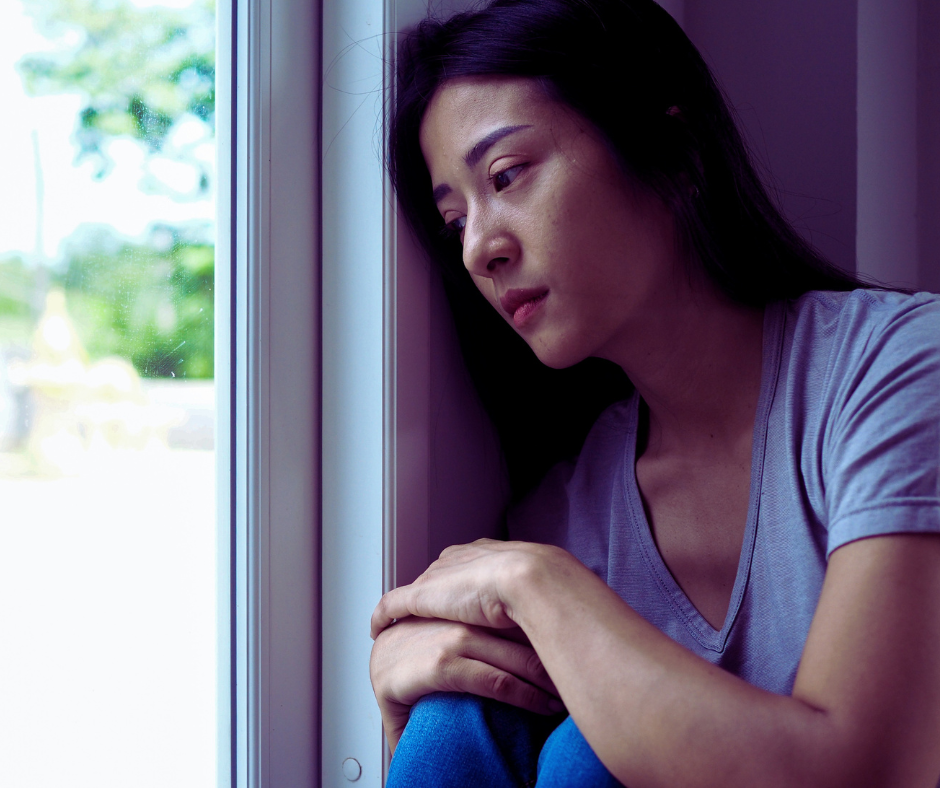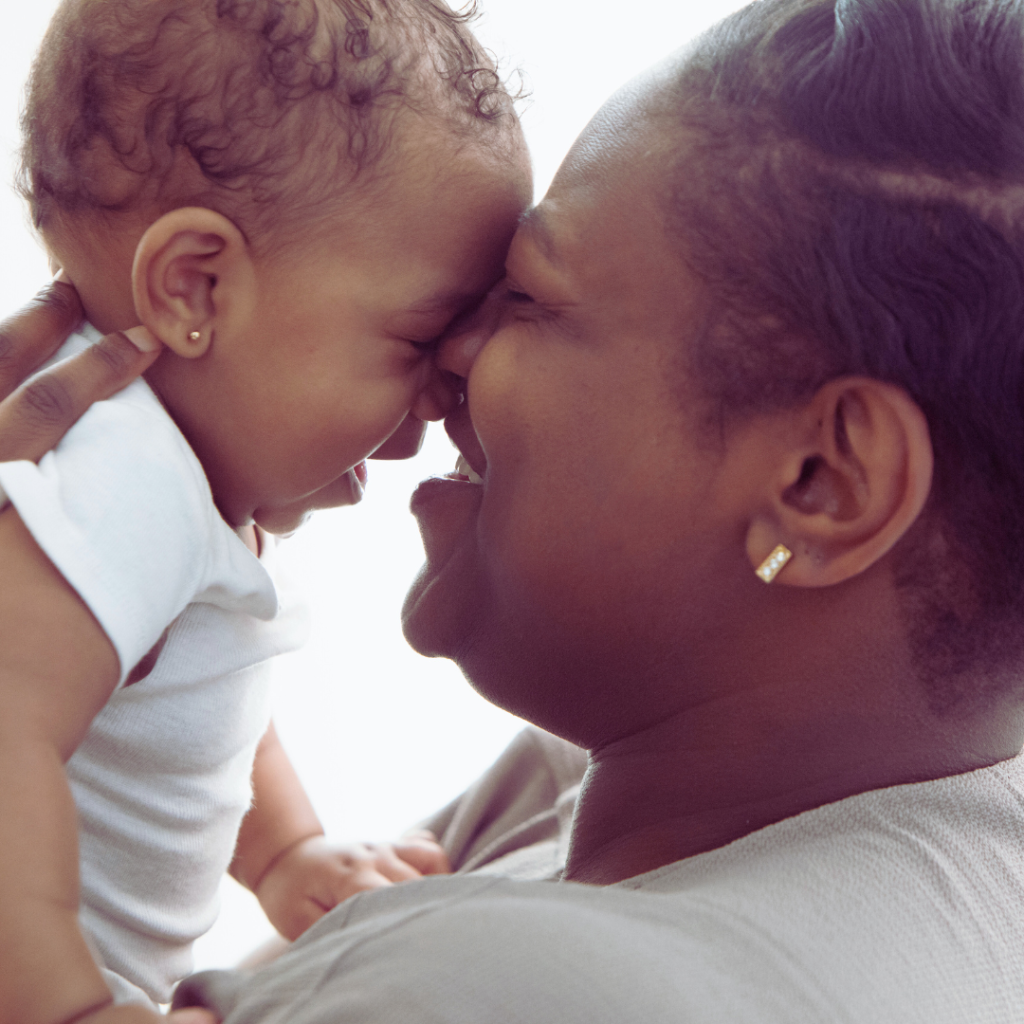
We hear a lot about postpartum depression (PPD) when we first embark on the journey to motherhood, but knowing that it exists is different from understanding it and knowing what to look out for. Your healthcare provider will screen you for postpartum depression symptoms during pregnancy and right after birth, but in those times between appointments it’s best to have all the information, so you can seek help right away if you need to.
One in seven women will experience postpartum depression, but even though it’s super common, PPD can be extremely isolating. Many women feel ashamed, like it’s somehow their fault because they’re weak or failing to cope as well as others. It’s important that you know that PPD is a real condition and has nothing to do with how strong or capable you are – it’s not your fault.

Get help for postpartum depression
✓ 1-on-1 weekly sessions
✓ Perinatal mental health coaches
✓ Just $39 per session
What is PPD? Is it the same as the “baby blues”?
Postpartum depression is a mood disorder brought on by the hormonal shifts your body experiences during pregnancy and childbirth. While it’s likely you’ll experience sadness or emptiness for a brief period of time directly after birth (the “baby blues”), postpartum depression (PPD) is marked by enduring feelings of hopelessness, despair, sadness, or disconnect from your baby, lasting for longer than two weeks.
PPD and the “baby blues” share some symptoms, but they’re different in one important way: the “baby blues” are temporary and go away on their own, while postpartum depression lasts for longer than two weeks and usually requires treatment.
What does PPD feel like?
Between hormonal upheaval, sleep deprivation, and the general chaos that a new baby brings into your life, it’s not surprising to find yourself feeling less than your best. But if you’re feeling any of the below postpartum depression symptoms for longer than a couple of weeks, you may want to check in with a mental health provider.

Postpartum depression symptoms
- Intense sadness or mood swings
- Crying frequently and at unexpected times
- Difficulty connecting with your baby
- Insomnia or oversleeping
- Change in appetite
- Anger or irritability
- Feelings of hopelessness, guilt, or worthlessness
- Mind fog or inability to think clearly
- Extreme fatigue
- Loss of interest in your usual activities
The above are some of the ways postpartum depression affects mothers, but it can be hard to recognize mood changes in yourself, so be sure to check in with your partner to see if they’ve noticed any changes in you. Anger and social withdrawal are often some of the most noticeable ways that PPD might show up on the outside. And if you’re having thoughts of harming yourself or your baby, call or text 988. Help is available.
When does PPD start?
Most of us think of PPD as beginning during the first few months after birth, and that is the most common time, but you might be surprised to learn that postpartum depression symptoms can also start at three months or six months or anytime up to a year after delivery.
How long does it last?
As for how long it lasts, that varies and depends on whether or not it’s being treated. Left untreated, postpartum depression symptoms can last for months or even years – one study found that 30% of women who didn’t seek help for their PPD were still experiencing symptoms three years later.
That’s why it’s so important to get the right treatment as soon as you can.

What are the best postpartum depression treatments?
The best thing to do for postpartum depression symptoms is to work with a mental health professional who practices cognitive behavioral therapy (CBT), which is extremely effective for depression.

Get support for postpartum rage
✓ 1-on-1 weekly sessions
✓ Perinatal mental health coaches
✓ Just $39 per session
While you wait for that appointment, here are three things you can start right away to improve your symptoms:
- Talk to your doctor. Your primary care physician can help you understand if your symptoms are postpartum depression or something different, and can advise you on a postpartum depression treatment plan. This may include medication, but whether or not you go that route you should definitely consider working with a mental health professional. Which leads us to the next step.
- Get structured emotional support. Regular sessions with a mental health provider can help you learn and practice coping mechanisms for your depression. A provider who practices cognitive behavioral therapy techniques like reframing and exposure is your best bet for fast, effective support. Support groups are also a great option if you want the community of other moms going through the same thing.
- Schedule some activities during the week that bring a sense of joy or mastery. For example, take a walk, even if it’s just around the block. Read or listen to music. Bake something. Deliberately scheduling activities, even if you don’t feel like it (actually, especially when you don’t feel like it), is the first step to overcoming depression.
The absolute best thing you can do for postpartum depression is get support from a mental health professional, and we can help with that. At Prospera, our mental health coaches are trained in cognitive behavioral therapy (CBT) techniques, which are super effective for depression, anxiety, and anger issues. We have dozens of interactive tools designed to support mom’s mental health.
Prospera: Mental Health For Moms




★ ★ ★ ★ ★
5.0 from 40+ ratings
Content reviewed by Dr. Andrea Niles, Clinical Psychologist
Anne Godenham is a writer and editor with a passion for mental health awareness and accessibility


